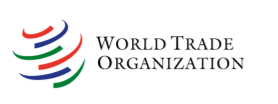environment
Virtual Trade Dialogues with Business — “Trade 4 Climate”
On this page:


The International Chamber of Commerce (ICC) and the WTO hosted a virtual Trade Dialogues meeting on 26 October 2021 to facilitate discussions between business representatives, WTO members and key stakeholders on how trade can support climate action. The meeting was an opportunity for participants to provide inputs on how trade can support efforts to raise the ambition of Nationally Determined Contributions (NDCs) and National Adaptation Plans (NAPs) in the lead-up to the 26th Conference of the Parties (COP26) of the United Nations Framework Convention on Climate Change (UNFCCC) and the WTO's 12th Ministerial Conference (MC12).
The virtual meeting focused on three topics: what is required for trade to drive enhanced NDCs; how to use trade as a tool for climate adaptation; steps needed for a just transition of supply chains to net zero.
News
- Click here for the programme of the event.
Session summaries
- Opening session
Summary - Break-out working session 1: Making trade a driver of enhanced Nationally Determined Contributions (NDCs) under the Paris agreement
Summary - Break-out working session 2: Trade as a tool for climate adaptation
Summary - Break-out working session 3: Securing a just transition as trade and supply chains adjust to net-zero, resilient strategies
Summary - Closing session
Summary - Removing tariffs and non-tariff barriers on environmental goods and services would assist WTO Members, and particularly developing countries, in cultivating climate resilience.
- Creating harmonized global standards, including on calculation methodologies for carbon emissions, could set consolidated guidance for companies and facilitate the reaching of carbon targets.
- Implementing the principles of the Trade Facilitation Agreement can decrease uncertainty for businesses and red tape at border crossings leading to reduced emissions and contributing to countries' NDCs.
- Improving global cooperation would assist in developing shared methodologies to calculate emissions.
- Silos between the trade and the environment communities should be broken down and preference should be given to holistic approaches geared towards achieving the Sustainable Development Goals.
- Building climate resiliency should focus on improving natural disaster preparedness and include the marine transport sector.
- Countries should step up trade facilitation and work towards eliminating trade barriers to environmental goods and services and ensuring the spread of climate adaptation technologies across the world.
- Businesses, including micro, small and medium-sized enterprises (MSMEs), should be part of the process of developing uniform carbon measurement standards.
- Public-private partnerships and government procurement can be means for attaining climate adaptation objectives.
- Developing digital solutions, including climate-smart societies and industries, are needed to deal with disruptions caused by climate change.
- WTO work should prioritize completing the fisheries subsidies negotiations, resuming discussions on the Environmental Goods Agreement (EGA), and harmonizing carbon pricing policies.
- Trade policies should enable progress in greening industries, foster innovation, and facilitate just transition that is inclusive with regard to MSMEs, women, and youth.
- Synergies between trade finance, climate finance, and development finance should be intensified to support MSMEs in adopting net-zero targets, especially in developing countries and least developed countries (LDCs).
- As MSMEs play a critical role for employment and livelihoods in developing countries and LDCs, technical assistance and capacity building are important in helping them address key challenges such as access to market information and to finance and technology.
- Assistance for adaption, technology transfer, capacity building, financial support, and incentives to transition to greener trade are needed to support LDCs with innovation.
- It is important to consider the impact of international trade rules on complementary strategies to support more resilient and sustainable business models, such as the transition to a circular economy.
- The WTO and other international institutions must intensify cooperation on common approaches to carbon pricing.
- The WTO Committee on Trade and Environment (CTE) serves as an incubator of ideas and a forum for policy dialogue that helps with coordination on climate-related policies and identification of technical assistance needs.
- The 12th WTO Ministerial Conference is expected to reaffirm the importance of sustainable development and issue ministerial statements by Members part of the Trade and Environmental Sustainability Structured Discussions (TESSD) and the Informal Dialogue on Plastics Pollution and Environmentally Sustainable Plastics Trade (IDP).
Key points from breakout sessions
Break-out working session 1:
Break-out working session 2:
Break-out working session 3:
Useful links and resources
Background notes
![]() We are meeting at a critical time. COP26 will start in a few days and we need to ramp up ambition to address the climate crisis. We must act now across every economic sector in every country to shift the global economy to a low-carbon pathway. These dialogues are therefore a very valuable platform for the WTO to hear perspectives from business and other stakeholders and to engage on the way forward.
We are meeting at a critical time. COP26 will start in a few days and we need to ramp up ambition to address the climate crisis. We must act now across every economic sector in every country to shift the global economy to a low-carbon pathway. These dialogues are therefore a very valuable platform for the WTO to hear perspectives from business and other stakeholders and to engage on the way forward.![]()
Dr Ngozi Okonjo-Iweala, WTO Director-General
26 October 2021
Share
Problems viewing this page? If so, please contact [email protected] giving details of the operating system and web browser you are using.